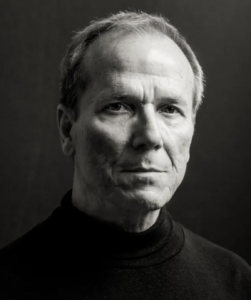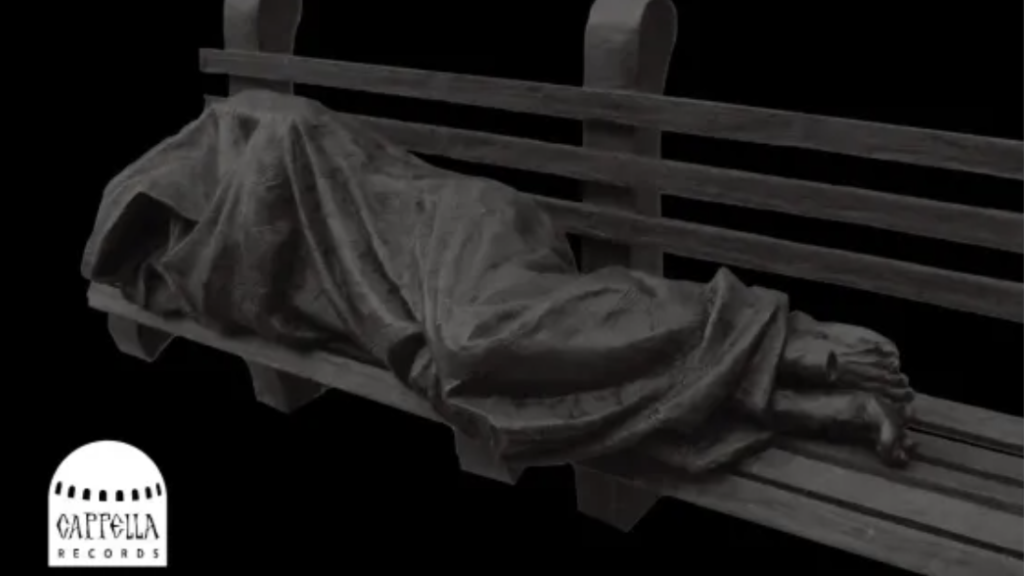A Miami parish will host the world premiere of a new sacred choral composition, Frank La Rocca’s “Requiem for the Forgotten,” during a Mass in memory of those who have died without a proper funeral.
Archbishop Salvatore Cordileone of San Francisco, who will preside at the Mass, commissioned the piece “for the repose of the souls of people on the margins: the homeless, the refugee escaping war and political or religious persecution, the martyrs of totalitarianism in all its forms,” La Rocca explained.
La Rocca is a prize-winning composer-in-residence at the Benedict XVI Institute for Sacred Music and Divine Liturgy, an organization founded by Cordileone. La Rocca studied at Yale and the University of California-Berkeley.
Richard Carrillo will conduct the professional choir of 20 singers and the chamber orchestra.
Carrillo, who is finishing his doctorate in choral conducting at the Frost School of Music at the University of Miami, noted that La Rocca is unique in the contemporary era. Besides one composer in the 1980s, Maurice Duruflé, “Frank is the new person, and first person, to do this.”
“He wrote these [for Masses], which is something that’s not been done in music history for centuries,” he said.
The “Requiem for the Forgotten” includes a new hymn, “Offertory for Ukraine,” written by poet James Matthew Wilson to honor Catholic martyrs persecuted under Soviet communism.
“Remembering the heroic witness of our 20th- and 21st-century martyrs is important in itself and also a key to breaking through the mythmaking around various forms of communism,” Cordileone told CNA.
The hymn honors Blessed Andrei Aschak, a Ukrainian priest who was killed by the Bolsheviks in the Soviet era, and asks for his intercession in light of “the disruption” of the recent war.
Carrillo noted that the Requiem is more than just music or a hymn: “It’s a plea, for an actual prayer, for this martyr, this saint in heaven, to continue to pray for the current situation.”
As a conductor, Carrillo said he tries to convey “the true power of music within the Mass” to his fellow musicians — not all of whom are Catholic.
“I want to create a prayerful experience that not only moves the musicians but can be made so that everyone who attends the Mass can be drawn deeper into prayer,” he continued.
In light of the Eucharistic revival, he hopes the music will bring “greater attention to the Eucharist” and “give it the honor.”
“[The composition] requires a high level of musicianship, musical abilities, technical abilities, to sing well, but it’s not meant for the concert stage — it’s meant for the context of the Mass, which is really the highest form of worship that we have,” he said.
Conveying the transcendent

La Rocca told CNA that his period of contemplation for this work was “far more challenging” than with any of his previous work, so he kept “a kind of diary.”
As he composed, La Rocca sought for his music to reflect “how God sees [the forgotten].”
“The deepest need of the forgotten, like the rest of us, is not simply shelter but a home — and that ultimate home is the Church,” he reflected, quoting a note from his diary.
When asked how his Catholic faith impacts his work, La Rocca noted that “we are all seeking an encounter with the transcendent — with truth and beauty and goodness.”
“We can get a glimpse of that through the arts and — for some reason — especially music,” he continued.
History of the ‘musical Mass’
In the context of music history a “musical Mass” can be traced over time, going back to the medieval era with Gregorian chant.
“And so all of the major composers throughout music history have done their own versions of Masses and Requiems,” Carrillo explained.
But these compositions “began to shift away” from churches and moved “more into the concert stage” around the 1700s-1800s, Carrillo explained, adding that La Rocca is doing something new with this Requiem Mass that hasn’t been experienced for centuries.
“The fact that it’s not just a concert, but we’re doing that in the context of a Mass; that’s, I think, what truly makes it unique and special,” he said.
“That’s part of what will give this credence when music historians look back in our era,” he reflected. “They will look to this, because it is something that is returning back to the original function of this musical genre.”
Visit here to register for the free in-person event at Epiphany Catholic Church in South Miami on March 15 at 7:30 p.m. or to attend the livestream.

